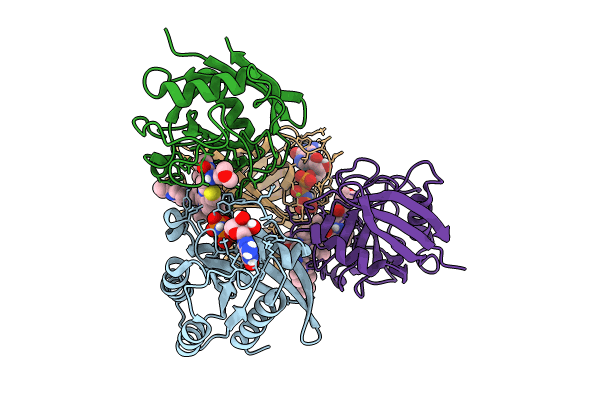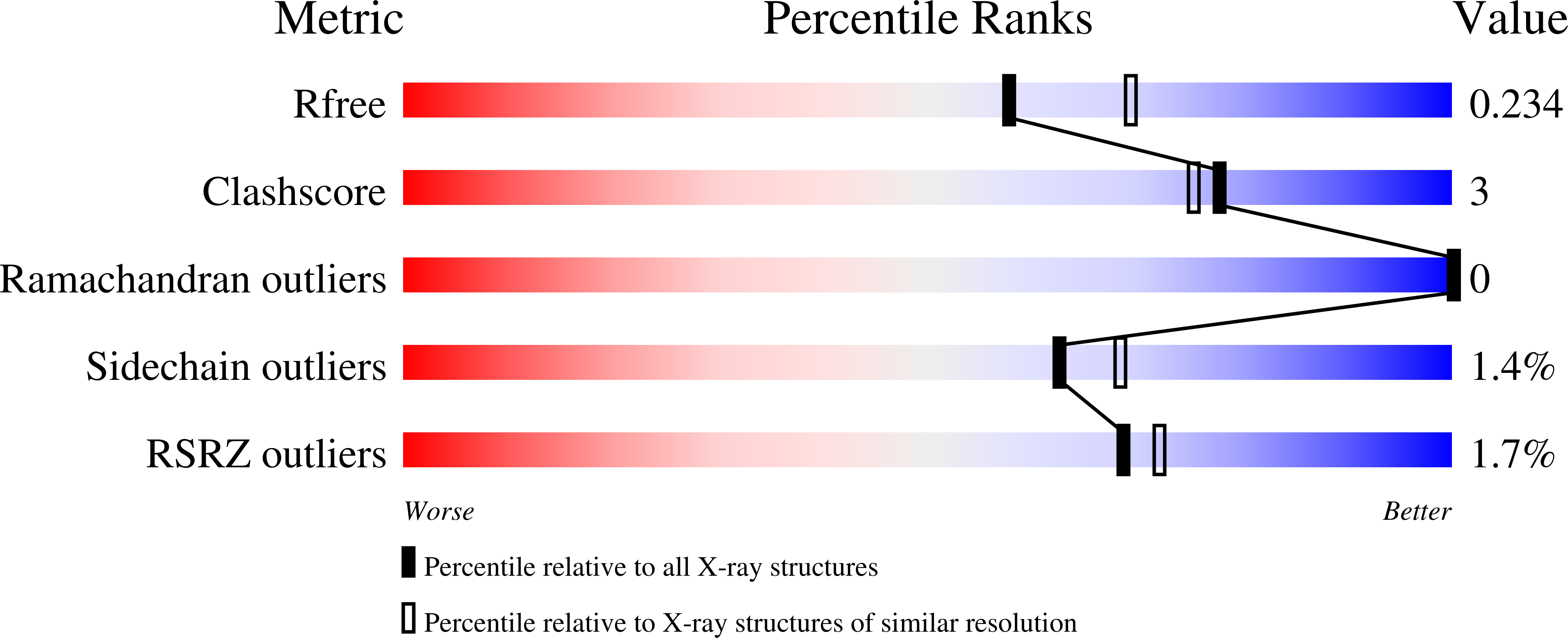
Deposition Date
2024-04-22
Release Date
2024-11-06
Last Version Date
2025-01-29
Entry Detail
PDB ID:
9BI2
Keywords:
Title:
Crystal structure of GMPPNP bound KRAS G12C in complex with CYPA and RMC-7977
Biological Source:
Source Organism(s):
Homo sapiens (Taxon ID: 9606)
Expression System(s):
Method Details:
Experimental Method:
Resolution:
2.15 Å
R-Value Free:
0.23
R-Value Work:
0.18
R-Value Observed:
0.18
Space Group:
P 21 21 21


